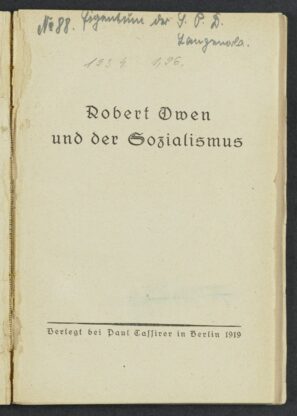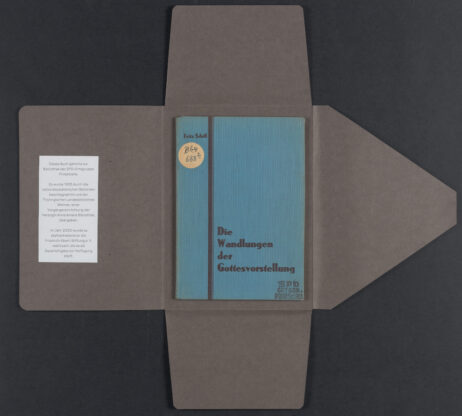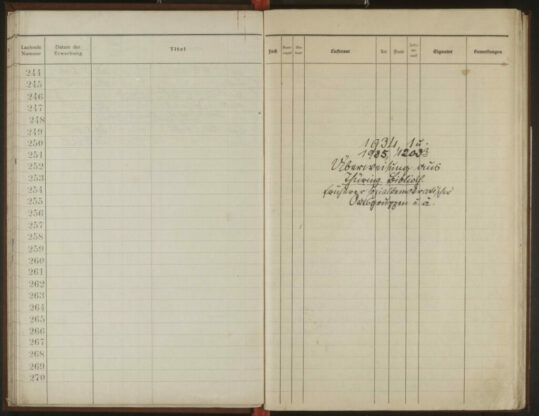On the track of suspect books. How the Klassik Stiftung handles Nazi-looted property in its collections
by Sebastian Schlegel
The collections of the Klassik Stiftung Weimar include cultural property that was wrongfully seized during the National Socialist era – for example, books from Thuringian local branches of the Social Democratic Party of Germany (SPD). For these, a solution has now been found.
>> read German translation here
Since 2010, the Klassik Stiftung Weimar has been conducting a systematic review of its holdings with a view to identifying cultural property that was seized from its owners due to persecution during the National Socialist era, and hence wrongfully acquired for the Weimar collections. The following case demonstrates that the Nazi regime also relentlessly persecuted political opponents, robbing them of their property:
The search for indications of expropriation during the Nazi era included the holdings of the Thuringian Landesbibliothek Weimar, the largest predecessor institution of what is today the Herzogin Anna Amalia Bibliothek. The researchers were struck by a list entitled (in translation) “Transfers from Thuringian Libraries former Social Democratic local branches etc”. It comprises more than 600 acquisitions of books, some of them in multiple volumes, which had been listed between April 1934 and June 1937.
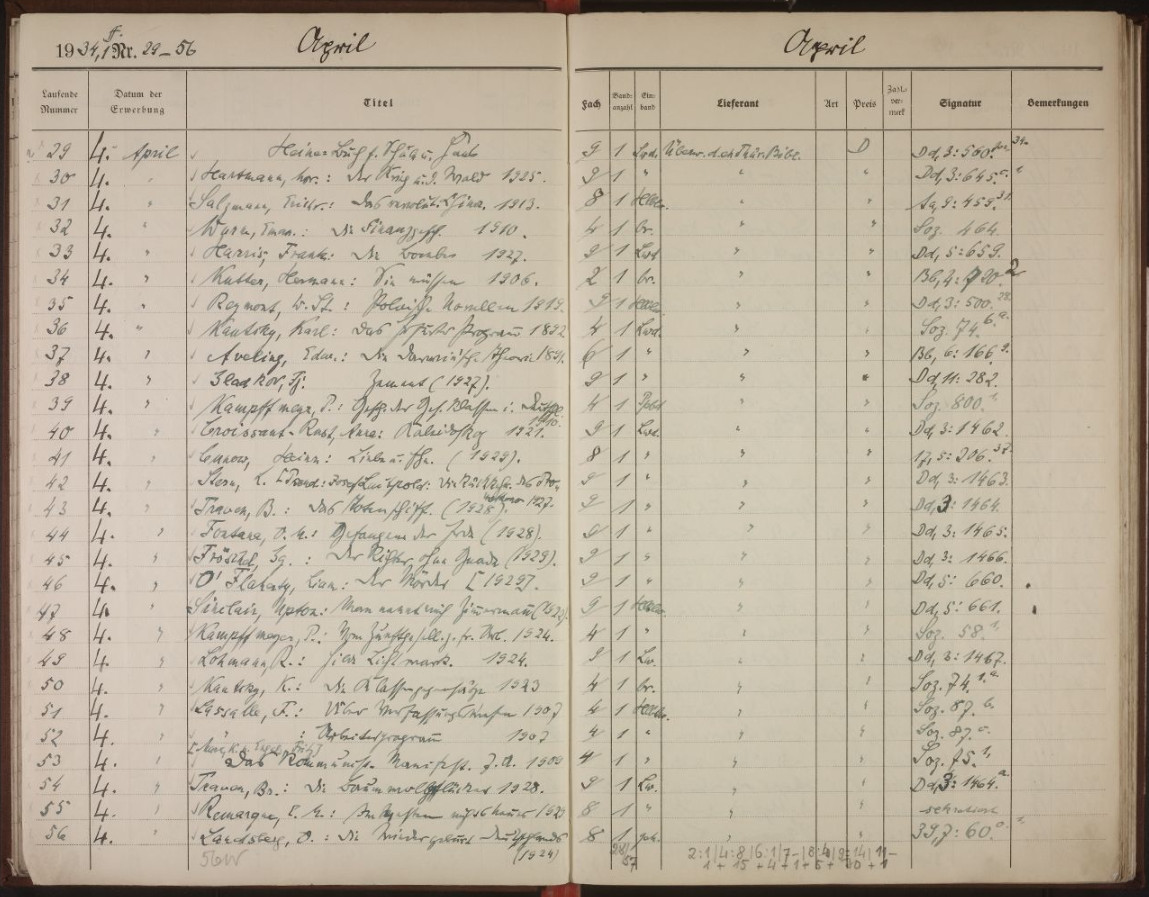
In the acquisition ledger, the column “supplier” noted: “Überw[eisung] d[ur]ch Thür[inger] Bibl[iotheken]”; the type of acquisition was listed in the column “price” as “D” for donum, that is donation.
Suspect acquisitions
The autopsies revealed various pieces of information: some pointed to unsuspicious acquisitions, but a larger number showed clear indications of seizures due to persecution. Consequently, 54 volumes could unambiguously be attributed to former Thuringian libraries of the Social Democratic Party, based on owner stamps and hand-written annotations.
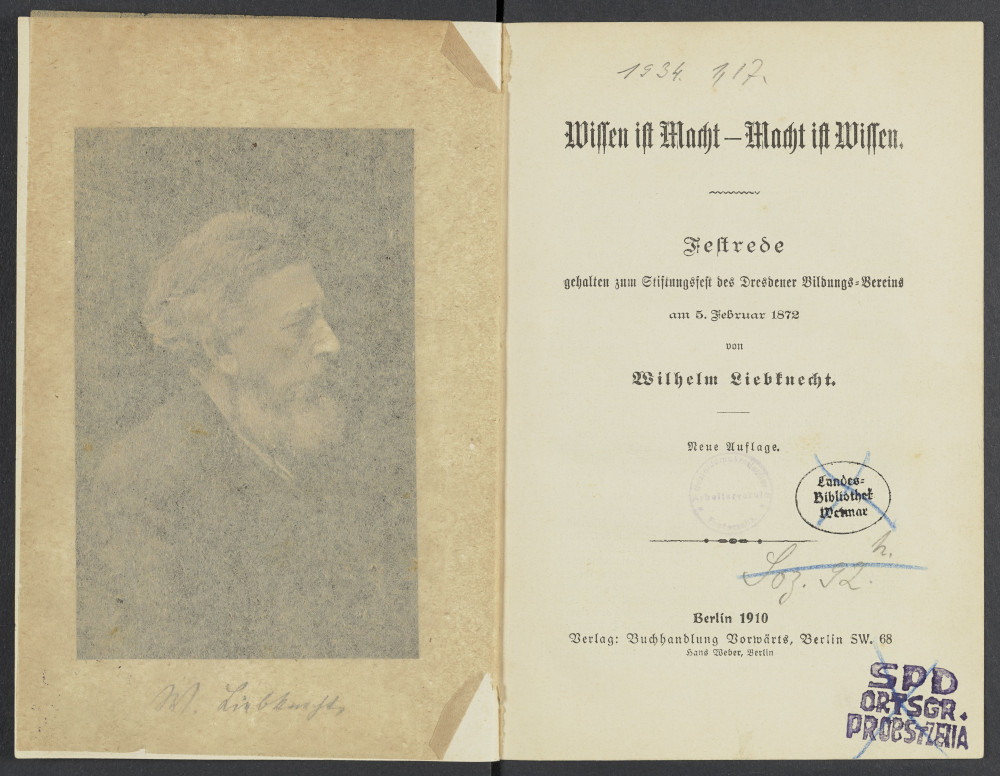
Confiscated volume with stamps of the SPD local branch in Probstzella. The access number 1934.1,17 notes the year of entry into the holdings of the Thuringian Landesbibliothek.
The Social Democratic Party of Germany (SPD) was one of those political associations which were pursued relentlessly by the Nazi regime. The Reich Minister of the Interior Wilhelm Frick banned the SPD on 22 June 1933 as “an organization inimical to the people and the state.” Soon afterwards, a law was passed that banned the founding of new parties, and the confiscation of the entire assets of the SPD in the German Reich was ordered.
Confiscated books
In Thuringia, the Ministry of the Interior had already ordered on 26 April 1933 that so-called workmen’s libraries of local branches of Communist and Social Democratic associations were to be dissolved. From 1934, police departments, district and municipal offices passed book collections to Weimar that had been partly confiscated and partly taken into custody during the dissolution of SPD local branches. The volumes were handed to the Thuringian Landesbibliothek.
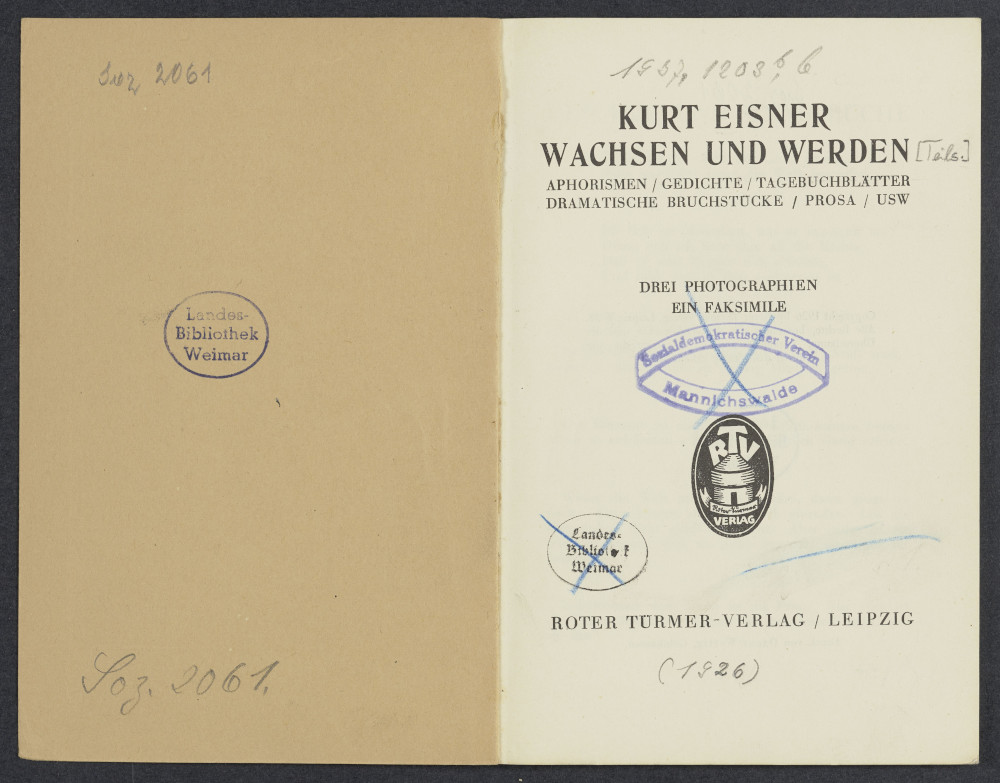
Confiscated volume with the stamp of the Social Democratic Association of Mannichswalde. The access number 1937.1203b, 6 notes the year when the volume entered the holdings of the Thuringian Landesbibliothek.
Back to the present: once it had been established without doubt that the volumes from SPD libraries were wrongfully acquired cultural property, it remained to be decided what should happen to these books.
In December 2018 the Federal Executive Committee of the Social Democratic Party of Germany nominated the party-affiliated Friedrich Ebert Foundation as recipient for the restitution of the contingent of books that had been seized due to persecution during the Nazi era. The foundation came to an amicable settlement with the Klassik Stiftung in October 2020, agreeing that the 54 SPD volumes were to remain in the Herzogin Anna Amalia Bibliothek on permanent loan from the Friedrich Ebert Foundation and continue to be available for all interested readers.
Separate catalogue of Nazi loot
In order to visualize the turbulent history of these volumes and their former owners, they are kept in custom-made and specially labelled envelope covers. The Herzogin Anna Amalia Bibliothek lists them in a separate online catalogue including all holdings identified to date as Nazi loot.
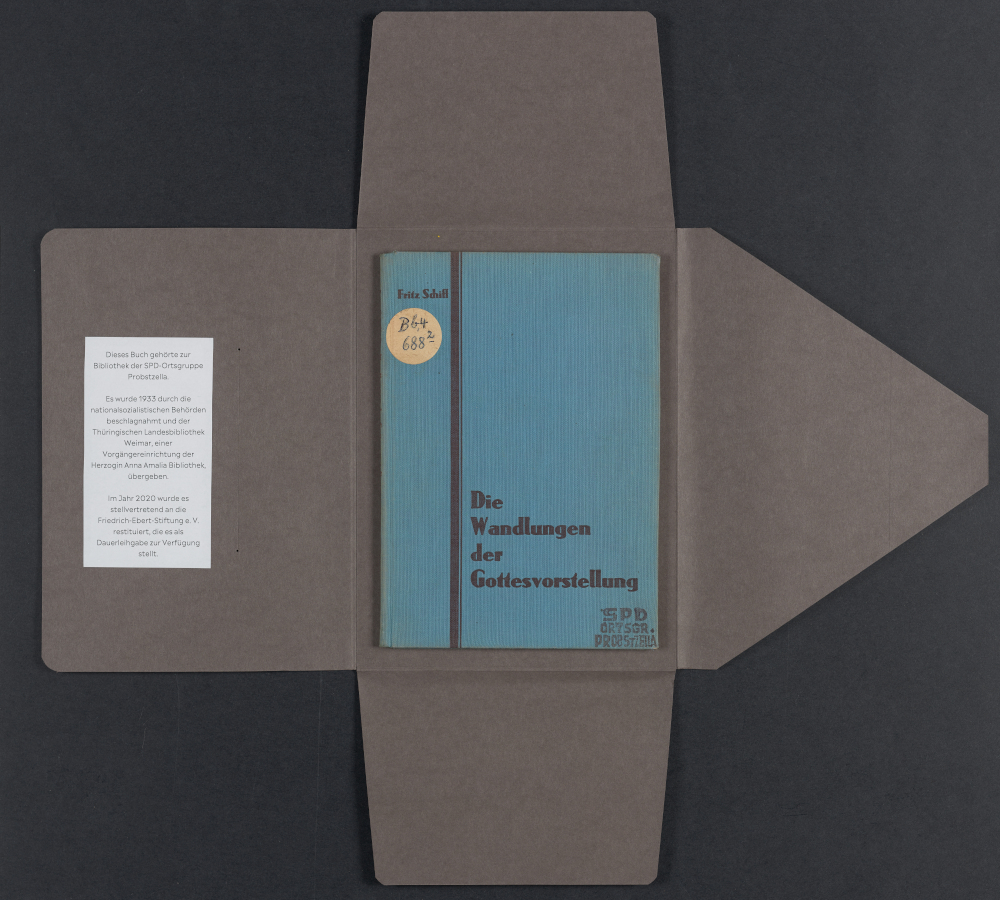
Custom-made envelope cover for a volume from the local branch of the SPD in Probstzella. All these book envelopes bear a note indicating the history of the respective volume and its restitution to the Friedrich Ebert Foundation.


